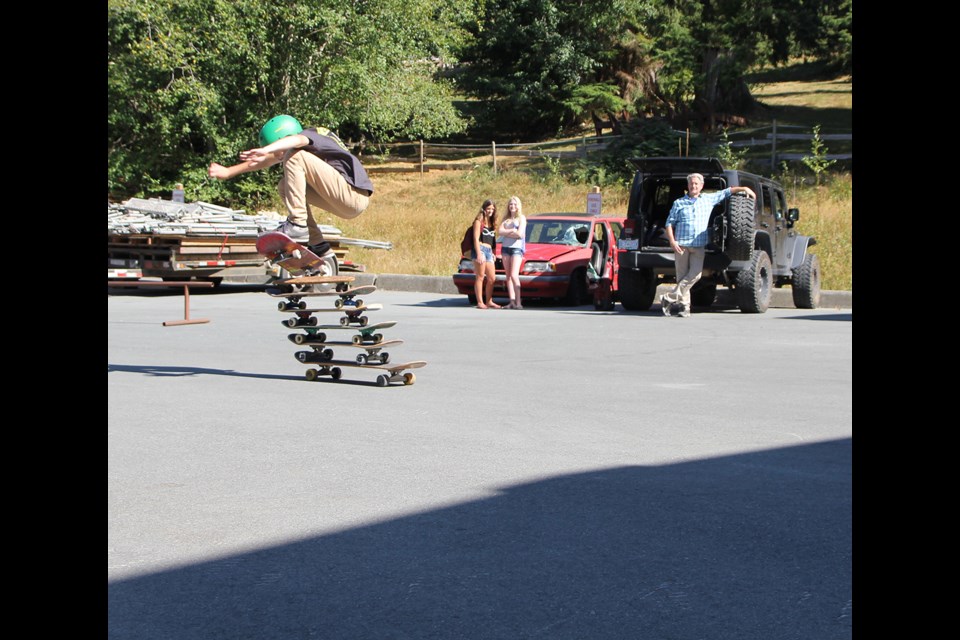Back in the sixties, when skateboards had metal wheels, it looked as though the activities surrounding this invention would prove to be simply a fad. There wasn't much a kid could actually do on these early boards, but the RAD Skates Demo Team, including Canada's first professional skateboarder ranked in the top 5 in the world for a decade who also rode with the Bones Brigade, Kevin Harris, showed Bowen Islanders how basic tricks such as the Tic Tack and Walk the Dog evolved alongside skateboarding technology.
"The urethane wheel was invented in 73' and that changed everything," says Harris. "These revolutionary new skateboards came to Canada in 75', which is when I got one. I went pro by my early 20s, and I'm 55 now. It has changed somewhat but, I have always really been bothered by the negative stereotypes about skateboarding and skate culture. I spent decades travelling the world as a professional skateboarder and have never drank or done drugs, and when you’re at a skate-park, that’s not what you see. On the other hand, I play softball, and you smell weed in the dugout at every game."
Rad Skates demo team member, member of the Gitxsan First Nation and RCMP Constable Troy Derrik told the Bowen audience that meeting Harris at the age 14 made a major impact on him, as it was he was told by his hero that he could grow up to be whatever he wanted - even a skateboarder.
"Troy is not an anomaly in that," says Harris. "I have encountered many people who have thanked me for inspiring them to get into skateboarding or to keep pursuing it because of the positive ways that skateboarding has impacted their lives."
Part of the beauty of skateboarding, as Harris sees it, is that it is something that young people do on their own and are even discouraged to do by the adults in their lives.
"When people tell you, don't do it, but you do it anyway, you break down a barrier for yourself," says Harris. "It is self-motivated and that helps in everything that you do, from your marriage to your career. I know people who have gone from being skateboarders to become doctors and lawyers, because they have learned to follow their passions."
Skateboarding's bad rap is changing, says Harris, thanks to the mainstreaming of the sport by Tony Hawk as well as the admission of the sport into the 2020 Olympics.
He adds that skate culture has an inherent sense of community built in to it.
"Go to any skatepark and you'll see older skaters looking out for the younger ones, offering tips, people of all background sharing space. Even though you may be competitive you're looking out for your fellow skaters," says Harris. "And skate parks themselves are also for bmx bikers, for younger kids on scooters. We need to start thinking of skate parks more as youth parks, and realize that they can become positive gathering spaces for the whole community.”



